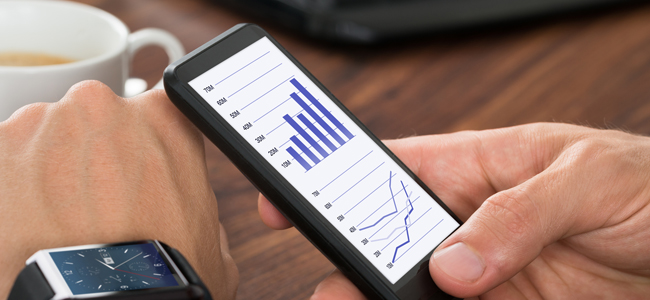Successful chief operating officers (COO) and other C-level executives routinely spend a significant part of their time thinking about the future. For those using business intelligence (BI) dashboards, some of this “future thinking” is likely to revolve around the future of BI dashboards. As noted by Dwight deVera, “Times are changing and dashboards must adapt to shifting user requirements… Future-proofing your dashboards are imperative if they are to continue delivering value.”
Forward-thinking COOs should also be on the lookout to make existing BI dashboards more effective. By some accounts, many business intelligence dashboards simply haven’t kept up with the fast pace of contemporary business operations in the 21st century — and even with BI dashboard successes, today’s executives and managers should be searching for ways to “make a good thing even better.”
For those companies that have not yet formally adopted a BI dashboard, the future thinking takes on an entirely different perspective. These chief operating officers are probably asking questions like this — “What can a BI dashboard do for our organization?”
Regardless of which business intelligence camp a company is in — both with and without current BI dashboards — looking ahead is always a smart move. As a global business intelligence and data management expert, Research Optimus has a number of BI dashboard perspectives that might help to shape your future business intelligence decisions. Here is a summary of several key thoughts about the future of BI dashboards:
- BI dashboards must be flexible in the face of even more data in future years.
- Mobile business intelligence must be accommodated by future dashboards.
- Cross-functional KPIs (key performance indicators) in dashboards are always a challenge.
- Change is inevitable for both BI dashboards and technology.
- Outsourcing can be a prudent alternative for streamlining the adaptation to future BI dashboards — and their replacements.
In the following paragraphs, we expand upon the above points.
Managing the Continuing Future Growth of Big Data
The entry of Big Data into the business intelligence process has meant that many companies can no longer store all of their own data. This has created a new version of data integration challenges — morphing from management of multiple internal databases to management of external data warehouses and other third-party data storage venues.
In a recent article, Marius Moscovici expressed a level of concern about how effective business intelligence dashboards are in the age of massive data — “There is simply too much data for businesspeople to know what matters most, and in which context… The information they (dashboards) provide is always incomplete.” In offering an objective counterpoint to critical comments like this, it should be noted that BI dashboards are indeed far from perfect — but thoughtfully designed business intelligence dashboards are still the “go to” strategy for many C-level executives trying to get more work accomplished in a 24-hour day.
In the meantime, COOs should (1) insist on flexibility for their BI dashboards and (2) regularly review potential alternatives to dashboards as they emerge. Experts like Research Optimus can also be counted on to keep executives and managers fully informed about new BI developments.
Evaluating the Future Role of Mobile BI
BYOD — bring your own devices — is already here in many organizations. According to several surveys, the number of organizations that allow employees to bring their own devices to work has grown from 62 percent to 74 per cent between 2013 and 2015. While this trend involves legal and compliance issues that must be taken into account in every situation, the growing role of mobile communication devices and mobile BI is already leaving a big footprint throughout the business world.
Chief operating officers should be thinking about how to integrate mobile devices into their business intelligence and BI dashboard process — in both the current and future iterations of business intelligence dashboards. The regular use of mobile devices is likely to be a major component in making BI data available to users on a “self-serve” basis.
Cross-Functional Key Performance Indicators
The number of performance and business metrics has grown to include thousands of possibilities. If this seems like a daunting challenge when it comes to BI dashboards, it is worth remembering that BI dashboards have proven to be one of the most effective solutions to the equally daunting challenge of managing Big Data in a cost-effective and time-sensitive fashion.
In a matrix-style decision-making process used by many C-level executives, the ability to quickly access cross-functional data from different operational areas such as sales and finance is usually mandatory. In moving from a current timeframe to the future, it is essential that BI dashboards are able to “keep up with the pace” of an innovative company with evolving KPIs. This is likely to be more doable if the business intelligence dashboard is personalized, searchable and self-service oriented.
Successfully Coping with Inevitable Changes for Business Intelligence Dashboards
Some business intelligence perspectives suggest the wisdom of “future-proofing” BI dashboards. Because change is truly an inevitable force to reckon with in today’s business and technology environment, a more realistic business intelligence expectation probably involves constant attention to flexibility — rather than assuming that an effective BI dashboard should be able to withstand and incorporate all future changes based on a future-proofing design.
Who Will You Call for BI Help in the Future?
The current and future health of BI dashboards can be viewed as an advanced “work in progress” that is operating in a fluid environment. The BI expert that you call today for business intelligence and dashboard help will ideally be the same expert that you call in the future. Research Optimus is a prudent choice when COOs are searching for a long-term outsourcing partner that has mastered the specialized art and science of business intelligence and data management — and providing high-quality help in both a timely and cost-effective fashion.
– Research Optimus





